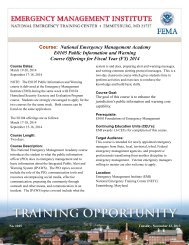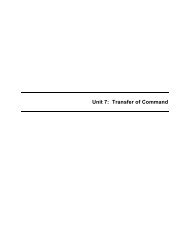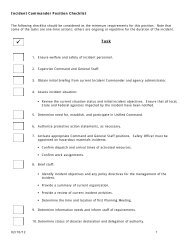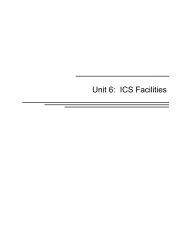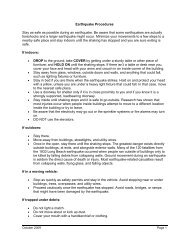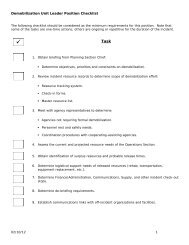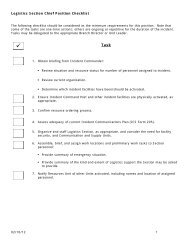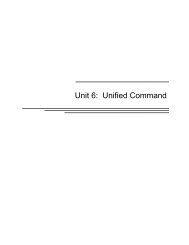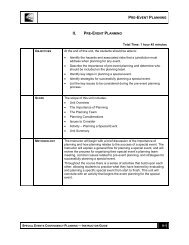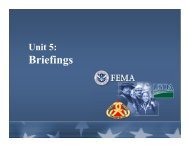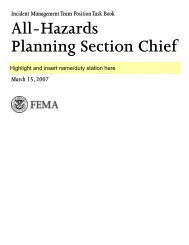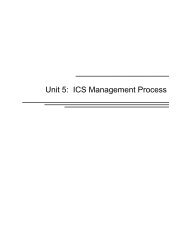Effective Communication - Emergency Management Institute ...
Effective Communication - Emergency Management Institute ...
Effective Communication - Emergency Management Institute ...
You also want an ePaper? Increase the reach of your titles
YUMPU automatically turns print PDFs into web optimized ePapers that Google loves.
UNIT 2: BASIC COMMUNICATION SKILLS<br />
Introduction<br />
This unit examines the basic components of communication: sending and<br />
receiving messages. Sending and receiving are not simple actions. In fact,<br />
how you deliver information and how you listen to others can dramatically alter<br />
how others respond to your message. But although communication is complex,<br />
it can be analyzed and refined. That is the purpose of this unit.<br />
Unit 2 Objectives<br />
After completing this unit, you should be able to:<br />
Define “communication” and apply that definition to various forms of<br />
communication.<br />
Describe why effective communication is important to emergency<br />
management.<br />
Understand different communication styles and how they affect interaction.<br />
<strong>Communication</strong> Models<br />
The value of a model is that it simplifies a complex process. <strong>Communication</strong> is<br />
just such a complex process, and using a model will help you send and receive<br />
communications—and will help ensure that others respond as required in an<br />
emergency.<br />
Immediately before, during, and immediately after an emergency, emergency<br />
and response personnel must respond quickly. Time to communicate is limited,<br />
and often a specific message that must result in practical action must be<br />
relayed to a large group. A very simple model that sends the message<br />
efficiently and elicits the desired response will be most useful.<br />
During the recovery phase, when sensitivity to the community’s cultural values<br />
and attitudes is perhaps most important, a more complex, culturally based<br />
model may be more appropriate. Failure to discern attitudes, beliefs, values,<br />
and rules implicit in different groups could disenfranchise some citizens and<br />
harm the community’s return to productivity and health. A cultural model is<br />
useful because it recognizes community members’ shared interest in the<br />
community’s future.<br />
<strong>Effective</strong> <strong>Communication</strong> Page 2.1



